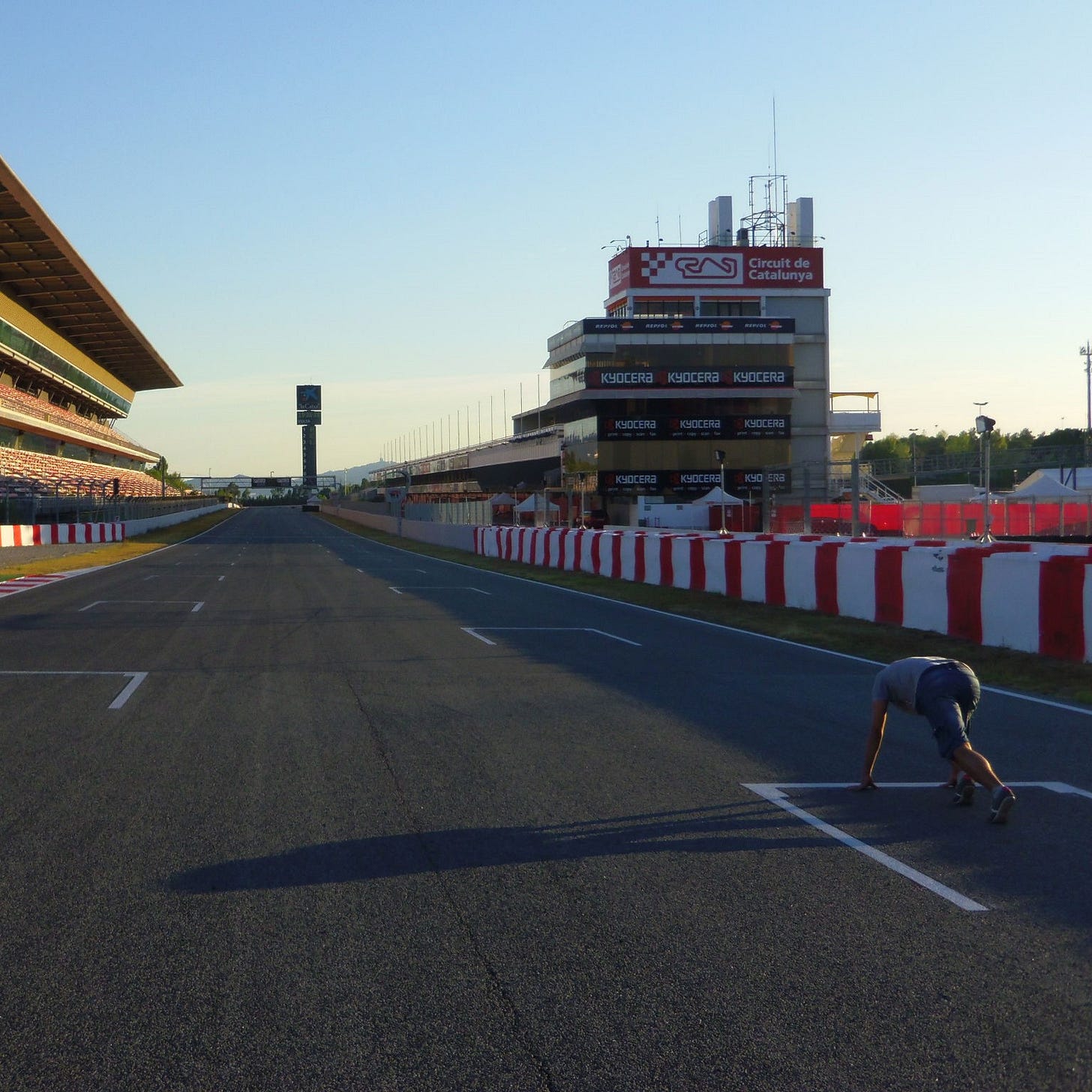El deseo como fuente de disciplina
Entrenando atletismo, construyendo un Formula Student y estudiando ingeniería al mismo tiempo.
Not training was not an option, I got angry if I couldn’t.
In general, not doing what I wanted to do was not an option. And I found in discipline a friend that helped me satisfy this desire.
I was studying engineering, I had already finished my degree in electronics engineering, and I was now studying automatics and control engineering. But my main interests were not my studies, they have never been. I have always liked to do things, to create stuff, to collect experiences. In this case, I was interested in building a Formula Student and training the 100 and 200 meter sprints. So, I saw my engineering studies as a mere formality that would open me the door to many options, such as being part of our university’s Formula Student team.
But, the day had too few hours to do everything I wanted. This is where I started savagely prioritizing, and “making the best” of every minute I had.
Instead of caring about grades, I started to aim to pass exams with the least effort. If I found some subject interesting or fun, I would invest some more time in it, but was not going to waste any time in a worthless subject. I would attend classes not because I would learn more by attending, but because I knew that this way I would force myself to exploit every minute of class.
Previous years, I had also learned that understanding the ‘why’ of things was the most effective way to pass exams, and I found in my friend Alain a great companion with whom to practice asking questions. We would spend every class hour asking ourselves ‘why this’ and ‘why that’ (to the misfortune of some of our teachers).
Instead of creating my own notes, I would use previous years’ good students’ notes and would take notes on top of them. I was not going to be wasting any time reinventing the wheel if I could leverage other intelligent peoples’ work. Yes, reading other peoples’ handwriting was a pain in the ass, but I would eventually get used to it and had a lot more time to invest asking questions instead of writing down things.
To study, I would stay at home. Other students would go to the library to focus more. In my case, I found this boring and very tiring. I had enough motivation to study, and I could focus easily, so staying at home I would waste less energy. There, I could read, do exercises and stand up whenever I wanted to kick my football against the wall, relax and get back to work (I still do it). Moreover, I could call Alain to further continue our debates.
I had a system that worked for me, and was very productive. After a couple of years, I was one of the few in my class that would pass every exam in the first try. Incidentally, I was probably also one of the busiest person, as I had a leader role in Formula Student and I invested many of my afternoons training athletics.
But I am not trying to present this as an extraordinary achievement. My “success” was as big as my desire. And also as big as my craziness.
I see similar patterns in my athletes. All the athletes that train 5 days/week are good students. Yes, there is survival bias playing here, not everyone can train 5 days/week and be a good student. What I mean is that these guys have become great at prioritizing their time, and they were not always like that. Some of them used to be very inconsistent in their trainings, and they changed their behavior and played tricks to ‘force’ themselves to consistently come every week. And all of them have something in common, a big desire for something.
My point is that, desire, well-used, is a great driver of change. When we want things badly, we are able to go to great extends, we can learn to learn better, savagely prioritize and say ‘no’ to most things, see leverages everywhere, find synergies…
By no means, I am saying to recklessly pursue every desire.
You could become a hedonist and waste your live drowning into superficial pleasures. Or could make you lose many of the beauties that life offers due to naive optimization. So, careful with not paying attention to the source of your desire. Or with having fixed, rigid and result driven desires.
But arguing against desire just because we don’t know how to use it is defeatist.
We can discuss what healthy desire is. Probably it has a different answer for each of us, and it is an answer that will keep changing over our lifetime. But desire, as the rest of our emotions, is an important part of a healthy being, part of our own nature. And rejecting our nature instead of embracing it tends to be a fast track to repression and a miserable life.
I believe in embracing our nature. Not every situation is safe or appropriate to express emotions, so holding onto them can be necessary in some situations. But this is not a long term solution. At best, it is a short term patch and an emotional debt that we will need to pay sooner or latter.
In my case, having unlimited desire taught me discipline. But also that I want to know where are they coming from and to interpret them more widely. Now, I am still reckless in my priorities, just that my priorities are more about living a good life, a definition that changes daily.
And you, what do you desire? What are you crazy about?


